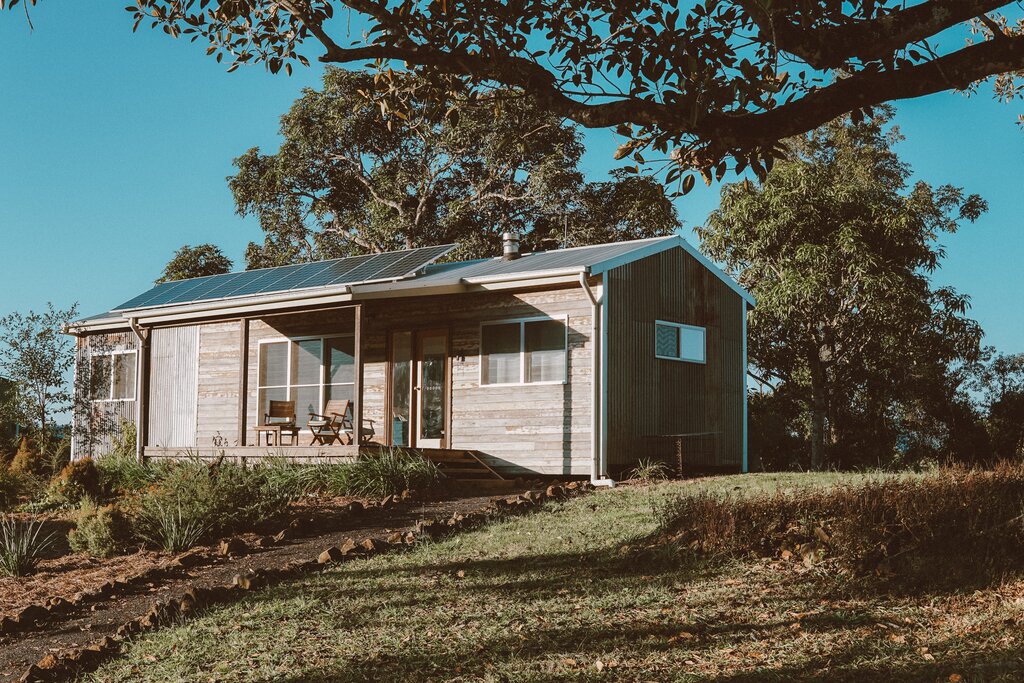In the US, buildings account for 40% of all carbon dioxide (CO2) emissions and 14% of potable water consumption. In the midst of a climate crisis, the sustainability of traditional housing standards must be reassessed. At the same time, an affordability crisis is impacting the housing market. Facing these concerns, homeowners and prospective buyers should identify feasible means of reducing pollution. This includes determining ethically, environmentally smart and sustainable housing decisions.
—
Is your housing affecting the environment? This is a question every citizen should ask of their situation in the midst of joint crises.
Fortunately, the potential to innovate green homesteads is increasing all the time. With the integration of smart technology in cities, material and construction innovations, and the declining cost of renewable energies, the means to improve housing sustainability are rapidly expanding.
As these developments advance, it’s the responsibility of homeowners and buyers who can feasibly do so to evaluate the environmental effects of housing. Sustainability is vital to the success of people, economies, and the environment as a whole. Explore and identify the issues to make more ethically conscious housing decisions.
Sustainable Housing Is Becoming More Feasible
First, let’s take a look at the ways sustainable housing is evolving to be more accessible and transformative. These transformations are taking place all over the world, as municipalities adopt smart technology that promotes energy efficiency. Meanwhile, the global economy for renewable energies is only growing as it continues to represent a cheaper and cleaner alternative to our current dependence on fossil fuels.
Cities are where the majority of the world’s population lives, and urban trends are only going to increase with time. This carries with it significant implications for the environment, with urban land expected to make a five-fold increase by 2050 to incorporate 3 million square kilometres. Once urbanised, these environments consume massive amounts of energy and produce high levels of carbon emissions. However, there is hope in green tech and innovations.
Urban trends veer towards smart technology and efficient use of space. From non-rectangular soccer fields to the repurposing of old buildings, cities are striving to use land and energy efficiently. This includes features like smart lighting, which can reduce energy costs for cities down from the 20-50% of municipal budgets spent on lighting alone.
Then, there are the advancements in digital technology and construction practices that elevate sustainability potential in buildings. With connected devices on the Internet of Things (IoT) feeding data to AI modelling tools, energy efficiency can be automated and advanced.
In the meantime, renewable energy sources have made groundbreaking advances in energy grids around the world. This has occurred in part due to the 80% decline in the cost of these sources over the last decade. Now, renewables are often cheaper than other fuel sources per megawatt-hour of electricity.
All these advancements and more change the playing field for sustainable housing. In light of them, homeowners and buyers can identify eco-friendliness and areas of improvement in their homes.
Identifying the Eco-Friendliness of a Home
Identifying a home’s environmental impact isn’t always a simple process. However, there are tools and methods you can apply to assess the effects of your space and housing habits on the world around you.
The first step in assessing the eco-friendliness of a home is to evaluate its carbon footprint. CO2 emissions are the largest factor in this measurement, representing 79% of all greenhouse gas emissions. However, other emissions include methane and nitrous oxide. These pollutants don’t just come from the home itself, but the way you conduct your lifestyle out of the home.
From transportation to and from work to the fuel you use to heat your space, a host of considerations make up your overall footprint. A carbon footprint calculator can help you assess where sustainability improvements can be made. The good news is calculating these metrics can be simple and cheap. For instance, the EPA offers a free Household Carbon Footprint Calculator tool to help you identify the eco-friendliness of your home.
From here, assess the trends in urban housing you can adopt that swing towards sustainability. These include the use of green materials, non-toxic paints, solar panelling, and other energy independence upgrades. Fortunately, buildings are increasingly incorporating these features as the global demand for sustainability continues to advance. This means that finding a more sustainable home is becoming easier, just as energy-efficient upgrades are becoming more accessible.
Making Ethical Housing Decisions
It’s important to remember that buildings in the US consume 39% of total energy use and 68% of electricity consumption. This means that the choices within the home and in-home design can have a real impact on the larger environment. Starting with the selection of a housing type, you can begin to make more ethical housing decisions.
That’s because different types of housing entail differing energy demands. Naturally, the larger the home the more power it will take to heat, cool, and light. The OECD found that the U.S. leads the world in terms of floor area per capita and also has the highest link between energy intensity and carbon footprint.
To break away from this intense use of power, consider more energy-efficient home decisions. Single-family homes are great as bastions of privacy and open space. However, condos and townhouses can be more efficient due to their density and more limited use of space and resources. Similarly, more compact housing developments like apartment buildings reduce greenhouse gas emissions by 10-40%.
Often, the role of denser housing in pollution reduction also comes from the proximity these buildings tend to have to workplaces and local amenities. With less driving necessary, these occupants can minimise their overall carbon output. These are considerations you too can make in your own housing decisions.
Similarly, green constructions are outpacing traditional building decisions. These include LEED-certified constructions which have 34% lower CO2 emissions, consume 25% less energy, and use 11% less water. Nearly 94,000 of these buildings already exist across 167 countries, representing ethical options for you.
While industrial construction and development companies have a responsibility to green themselves, individuals can support the trend of the industry towards sustainability by making ethical housing decisions. We can all play a role in reducing the environmental impact of housing by making sustainable choices in our own homes.
Reducing the Environmental Impact of Housing
Housing is one of the biggest draws on resources and energy, especially within the US. Mitigating the effects of housing on the environment in these circumstances requires smart and ethical housing decisions. Start by assessing the carbon footprint of your home, then take these considerations into account when looking for a new place to live. We can get to a more sustainable world, but we will need to start one house at a time.
Featured image by: Elle Hughes from Pexels


















